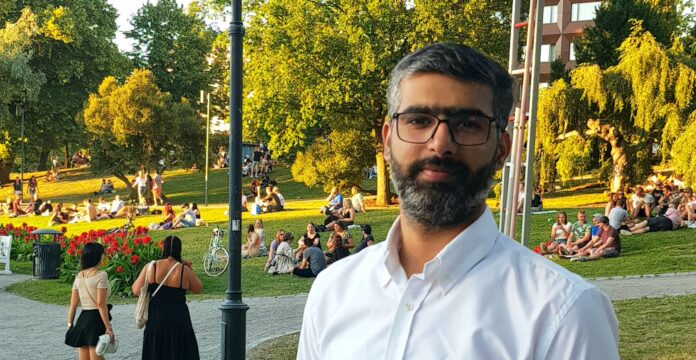Additionally, we are waiting for the arrival of the new energy efficient ferry and the large-scale battery manufacturer. But, why is Vaasa doing so well?
Vaasa, which is the second most international city in Finland, is wonderful because the sun is nearly always shining, distances are short and the seashore is beautiful. However, one of the main reasons that Vaasa is doing so well is its key stakeholders ability to cooperate in an unique way.
Anna-Kaisa Valkama, the program director at the Technology Centre Merinova, is helping the energy cluster in Vaasa to grow and prosper. Anna-Kaisa is also a member of InnoLab’s Advisory Board.
Vaasa is the largest energy technology centre in Northern Europe – there are 140 companies here that employ over 11,000 people. In relation to its population, Vaasa is the largest university city in Finland. There are six university units that are renowned in the fields of business and energy technology. Furthermore, over 90 % of Finnish product development in automation and electrical engineering occurs in Vaasa and more than 80 % of the solutions are exported, which makes international competitiveness a lifeline for companies. But how can this competitiveness be maintained? What are the worst obstacles Vaasa may face regarding growth and competitiveness?
During the autumn of 2017, an interview study was conducted that examined energy technology companies in the region and their subcontractors. The results indicated that there was a clear need for digitalization-related competence and for cooperation between actors. Today, digitalization is revolutionizing the business environment; to effectuate the process of digitalization, new resources are necessary. Up to 41 % of companies in the region are already suffering from a major shortage of talented labour. Moreover, there is a shortage of experts – especially in digitalization. Because this exact problem exists nationally and globally, it has created extreme competition among experts. To maintain its competitiveness, Vaasa must use all its available resources to gain knowledge and expertise in digitalization.
At the end of 2017, Development Director Andreas Paschinsky from Devatus Oy, which is a quickly growing software company based in Vaasa, struggled with this problem. An empty chair, or rather, a room of empty chairs, was precluding the company’s growth. He did not know where to find knowledgeable people who could handle global customers’ projects. So, he knew that something should be done – he decided to work together with the other actors to tackle this obstacle.
As a response to this talent shortage, the Digitalization Academy (the Academy) was established in cooperation with the universities, The Regional Council of Ostrobothnia and several businesses throughout the region. The Academy, which will open in the beginning of 2019, aims to bring interdisciplinary students from the fields of energy, business and ICT together to solve the challenges of digitalization being faced by businesses. These students will work towards finding a solution by analysing case studies, completing assignments and writing thesis papers.
The Academy is specifically targeting students who are seeking internship or thesis work. The Academy will provide companies with a new tool they can use to map their potential for new business in digitalization. Also, the Academy will help businesses to acquire new ideas and will allow them to become familiar with the top students before they are hired. In the future, the Academy will also attract new experts to the region who will be able to work on a global level.
Furthermore, the Academy intends to train its top students to become even better. The head of the Digitalization Academy, Peter Hellström, described the Academy’s goals by comparing them with the Academy of Sports. He stated that the Academy will provide students with career coaching, increase their communication skills and teach them how to handle technical issues, which is akin to how new NHL players or F1 drivers can be trained by attending a high-class training program that includes concrete milestones.
While the Academy already supports the EnergyVaasa cluster, the Academy model is also expected to be conceptualized and modified to the needs of other businesses in Finland to help them meet their local industry needs. You will later hear more regarding this concept because InnoLab is – of course – helping to develop and innovate the Academy’s activities!



